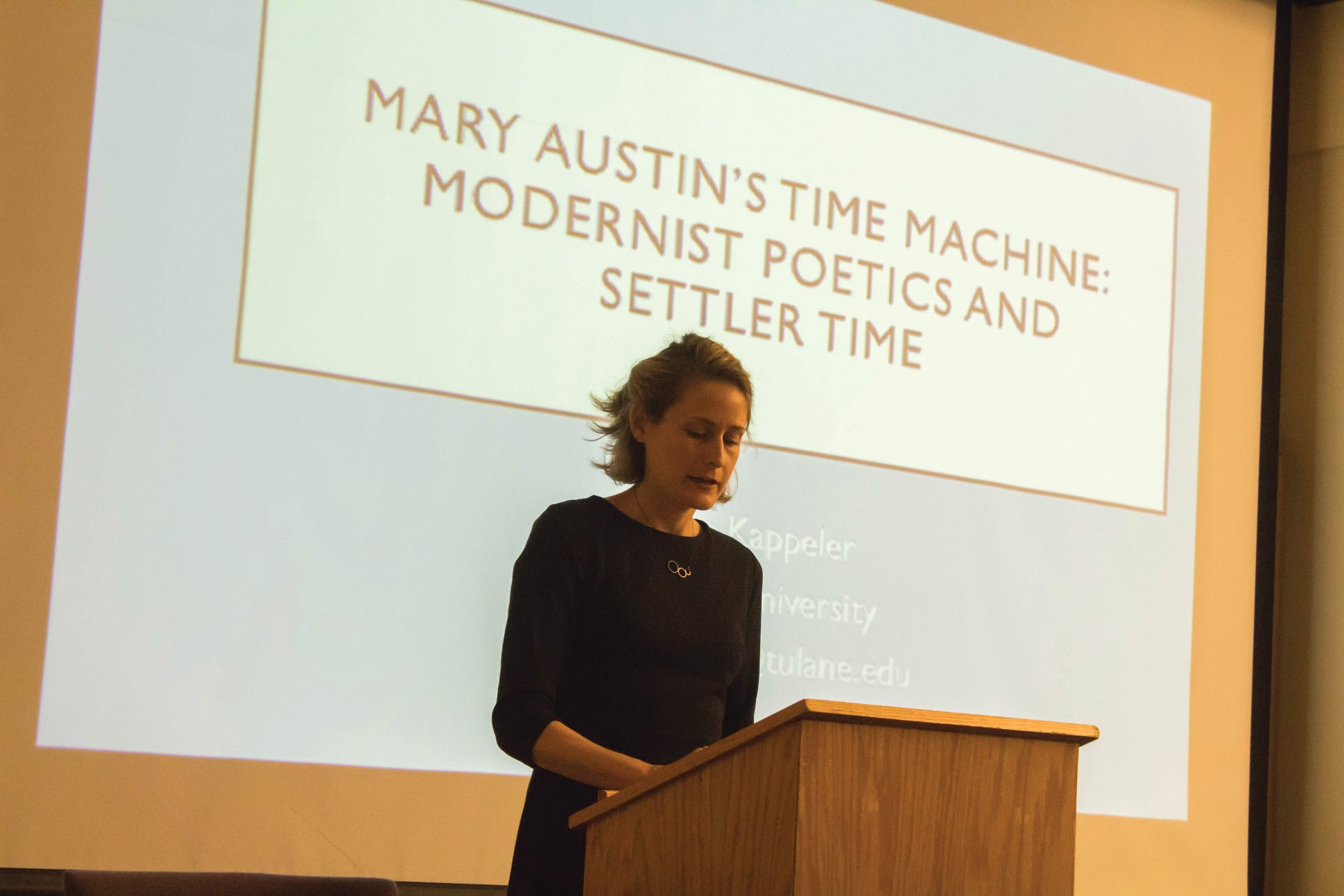On March 4, Erin J. Kepler, a visiting professor from Tulane University, gave a talk on Native American poetry and innovation of language titled “Mary Austin’s Time Machine: Modernist Poetics and Settler Time.” Introduced by Margo Lukens, the director of the McGillicuddys Humanities Center, the talk furthered this year’s theme, “Society, Colonization, and Decolonization” by introducing the importance of Native American language regarding our modern perceptions of time and rhythm.
Beginning with a lecture and followed by a relaxed Q&A, Kepler introduced free verse as an ideal of white America’s identity rather than a strictly aesthetic movement, highlighting her current book project, as abbreviated, “The Secret History of Free Verse,” unpacking how translations of Native American oral expressions are commonly understood without sufficient context. Kepler adds that she doesn’t want to reconcile the past, but recognize the significance of native literature among settler ideals.
“I don’t think reconciliation is a good paradigm for this kind of work but rather I’m interested in getting all of us to acknowledge the way that settler, colonial racist thinking shapes the study of native literature,” Kepler said.
She went on to explain her research within the context of Mary Austin, an author and activist who claims that free verse poetry was a poetic expression designed to be perfected by white poets. Through her activism, Austin may have buried the true expressions of Native American poetry and song. Exemplified by Austin’s analysis of poetic rhythm in Native American poetry, Kepler extrapolated problematic “settler time,” or the white interpretation of a native form of rhythm.
“Free verse was a poetic expression of an emerging modern white race,” Kepler said. “The idea that race and poetic form are connected had a profound effect on the development of Native American poetry as an object of study … my work on Austin seeks to understand Austin’s major contributions to modernist poetics and to the formation of Native American poetry in all of their contradictory fullness.”
Kepler discussed transcription later in the lecture, emphasizing Austin’s idea that Native American poetry was written song, or written spoken culture, leaving Austin to attempt the translation of available narratives. Kepler described how Austin mistakenly equates forms of textual literacy to stages of civilization development, believing Native American songs to be a “pure” form of poetry later to develop as based on a white narrative. Although there certainly were Native American poets by the time of Austin’s transcriptions, the white narrative analyses of earlier poems prove to be either convoluted or, at the very least, requiring a second eye.
More talks concerning the theme “Society, Colonization, and Decolonization” will continue throughout the rest of the semester, run by the McGillicuddy Humanities Center, some of which have included: “Innocence Unprotected: The Cinema of Colonization and Decolonization” and “Cancion/Cancao, a recital of art songs from Cuba, Brazil and Argentina featuring mezzo-soprano Caitlin Felsman.” The next event will be a free movie viewing on Monday, March 9 from 6-8 p.m. featuring “Coffy: The Cinema of Colonization and Decolonization” in the Barrows Hall Hill Auditorium.










